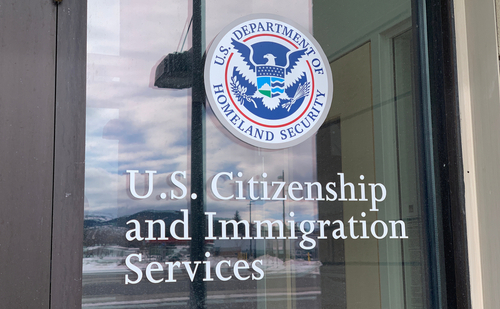What does it mean to file a petition with USCIS?
By Brian in Immigration | on 2023-11-27 15:49:36
The process of immigration usually starts with the filing of a petition with the United States Citizenship and Immigration Services (USCIS). A petition is a document that contains information about a noncitizen who wishes to immigrate to the U.S. The petition is usually filed by a sponsor who can be a relative or employer, but in some cases, the noncitizen can file the petition for themselves. At J Sparks Law, we have experienced immigration attorneys who help clients in the Austin area successfully file their petitions with USCIS.

Requirements for a Petition
Many of the petitions filed with USCIS are routinely denied because they lack the evidence required to approve a petition. To be approved, the petition must be accompanied by evidence to show that both the petitioner (the person or entity filing the petition) and the beneficiary (the person for whom the petition is filed) meet the strict requirements for the type of petition filed.
There are three types of petitions: petitions by a relative, petitions by an employer, and self-petitions – meaning, petitions filed by the individual who seeks to migrate.
Relative Petitions
A relative petition is a petition filed using USCIS Form I-130 by either a U.S. citizen or a lawful permanent resident (green card holder) to have a qualifying relative receive a green card. A qualifying relative is an individual who is related to the petitioner and may apply for a green card under U.S. immigration law based on that relationship.
These relatives are typically confined to spouses, children, siblings, and parents of a U.S. citizen or spouses and children of a green card holder who are under the age of 21.
The information on the I-130 petition is used to determine that a valid family relationship exists between a U.S. citizen or green card holder and the person they seek to sponsor for a green card. For marriage-based petitions, the I-130 petition is filed to prove that the marriage is legally valid and genuine.
A marriage can be legally valid (meaning there is a certificate to prove the legal marriage), but for immigration, all marriages are presumed fraudulent or “sham” marriages to fraudulently obtain a green card. It is, therefore, up to the petitioner filing the I-130 petition to prove that the marriage is genuine. This is accomplished by providing evidence to show that the marriage is genuine, such as joint property title or lease, joint bank account statements, joint insurance policies, and photos taken together as one would expect of any ordinary married couple.
Employer Petitions
American employers are allowed under U.S. immigration laws to recruit and hire foreign workers if they cannot find American workers to do the work. To do so, the American employer must file either an I-129 or I-140 petition, depending on whether they seek to hire someone in a temporary or permanent position. Either of these petitions must be accompanied by evidence to show that both the employer and foreign worker meet the criteria for obtaining a temporary or permanent visa (green card) based on this employment. In some cases, a labor certification may be required from the U.S. Department of Labor.
Discuss Your Options with an Austin Immigration Attorney
If you are in the Austin area and are thinking about filing a relative or employer petition, contact J. Sparks Law today and schedule an appointment to learn how we can help you.


